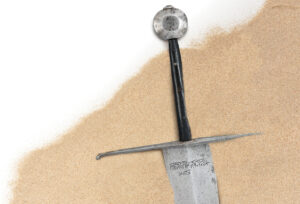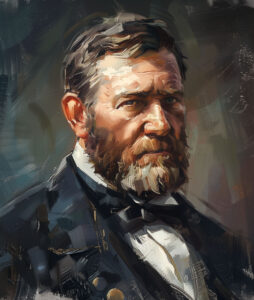Reviewed by Bruce Heydt
By Danny Danziger and John Gillingham
Touchstone Books, New York, 312 pages
Half a decade ago, the groundswell of anticipation leading up to the arrival of a new millennium spurred author Danny Danziger to take a nostalgic look back in time to the last generation to experience a similar historical landmark. The result was his timely book, The Year 1000. Now, unwilling to wait two centuries for another epic anniversary, Danziger has gotten a jump on the calendar and penned, along with John Gillingham, 1215: The Year of Magna Carta, another lively retrospective journey through medieval England.
Take note, though: This book proves that it is sometimes no wiser to judge a book by its title than by its cover. 1215 is not so much a book about Magna Carta, or even about the eponymous year as a whole, as it is about the mores, beliefs and lifestyles of the early 13th century. To be sure, the final two chapters deal at length with the history and myth that surround the Great Charter, and the book includes the complete text of the document.
The 200 years that had passed since the dawn of the second millennium in 1000 had seen social and economic changes that were, in their own way, as dramatic and influential as the limitations on royal power embodied in the Great Charter. Britain in the year 1000 was insular. Europe, for most practical purposes, was a distant and alien continent—one in which the average Anglo-Saxon Englishman had no interest. Even within the British Isles, the difficulties still inherent in transportation over primitive roads made villages worlds unto themselves. It was a hand-to-mouth existence, punctuated by few if any luxuries.
At first blush, it might not seem that things had changed all that much, but the England King John ruled over in 1215 was, in fact, a substantially different place. The Norman invasion had strengthened England’s ties to Europe. If it was not yet exactly cosmopolitan, it had at least become enmeshed in European politics and commerce. The commerce, in turn, enabled the import of luxury items into Norman England. At the same time, the Crusades were now underway in the Holy Land; closer to home, conflicts often erupted in Scotland, Wales and Ireland. All in all, this really was a very different England from that known to Edward the Confessor.
Danziger and Gillingham take an entertaining and sometimes earthy look at England under the rule of the early Plantagenet kings—John, Richard I, Henry II and Henry III. Along the way they examine a broad vista of the 13th-century landscape—domestic, rural and village life, the state of schools and the church, criminal and ecclesiastical justice and a lot more, including a surprisingly sympathetic evaluation of the practices of trial by ordeal and purging by water. In fact, perhaps the most interesting aspect of this volume is the revelation that the seemingly odd and naive worldview of our medieval progenitors, although admittedly foreign to our modern sensibilities, had its own sensible logic. To that extent, the 13th-century mind, it seems, was less superstitious and more rational than it is often credited with being. Less auspiciously, perhaps, we see that they also had many of the same weaknesses and foibles that we still wrestle with today. Maybe we haven’t really progressed quite as much as we like to think.




